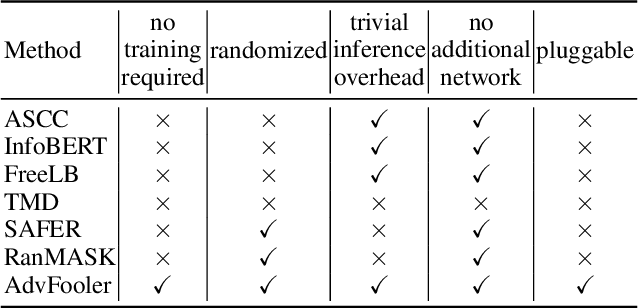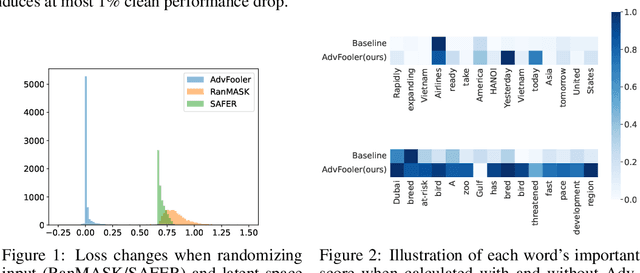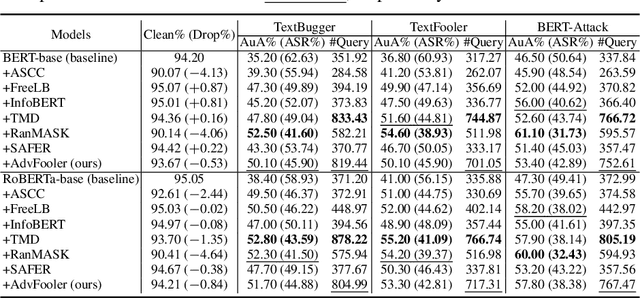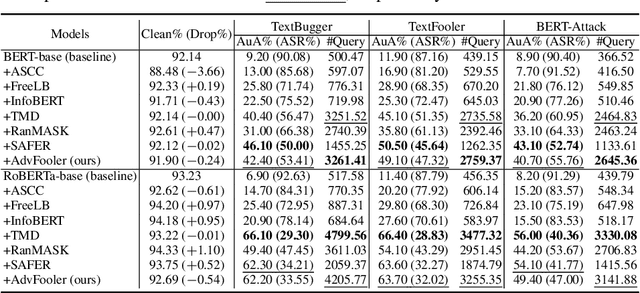Duy C. Hoang
Less is More: Sparse Watermarking in LLMs with Enhanced Text Quality
Jul 17, 2024Abstract:With the widespread adoption of Large Language Models (LLMs), concerns about potential misuse have emerged. To this end, watermarking has been adapted to LLM, enabling a simple and effective way to detect and monitor generated text. However, while the existing methods can differentiate between watermarked and unwatermarked text with high accuracy, they often face a trade-off between the quality of the generated text and the effectiveness of the watermarking process. In this work, we present a novel type of LLM watermark, Sparse Watermark, which aims to mitigate this trade-off by applying watermarks to a small subset of generated tokens distributed across the text. The key strategy involves anchoring watermarked tokens to words that have specific Part-of-Speech (POS) tags. Our experimental results demonstrate that the proposed watermarking scheme achieves high detectability while generating text that outperforms previous LLM watermarking methods in quality across various tasks
MetaLLM: A High-performant and Cost-efficient Dynamic Framework for Wrapping LLMs
Jul 15, 2024Abstract:The rapid progress in machine learning (ML) has brought forth many large language models (LLMs) that excel in various tasks and areas. These LLMs come with different abilities and costs in terms of computation or pricing. Since the demand for each query can vary, e.g., because of the queried domain or its complexity, defaulting to one LLM in an application is not usually the best choice, whether it is the biggest, priciest, or even the one with the best average test performance. Consequently, picking the right LLM that is both accurate and cost-effective for an application remains a challenge. In this paper, we introduce MetaLLM, a framework that dynamically and intelligently routes each query to the optimal LLM (among several available LLMs) for classification tasks, achieving significantly improved accuracy and cost-effectiveness. By framing the selection problem as a multi-armed bandit, MetaLLM balances prediction accuracy and cost efficiency under uncertainty. Our experiments, conducted on popular LLM platforms such as OpenAI's GPT models, Amazon's Titan, Anthropic's Claude, and Meta's LLaMa, showcase MetaLLM's efficacy in real-world scenarios, laying the groundwork for future extensions beyond classification tasks.
Fooling the Textual Fooler via Randomizing Latent Representations
Oct 02, 2023



Abstract:Despite outstanding performance in a variety of NLP tasks, recent studies have revealed that NLP models are vulnerable to adversarial attacks that slightly perturb the input to cause the models to misbehave. Among these attacks, adversarial word-level perturbations are well-studied and effective attack strategies. Since these attacks work in black-box settings, they do not require access to the model architecture or model parameters and thus can be detrimental to existing NLP applications. To perform an attack, the adversary queries the victim model many times to determine the most important words in an input text and to replace these words with their corresponding synonyms. In this work, we propose a lightweight and attack-agnostic defense whose main goal is to perplex the process of generating an adversarial example in these query-based black-box attacks; that is to fool the textual fooler. This defense, named AdvFooler, works by randomizing the latent representation of the input at inference time. Different from existing defenses, AdvFooler does not necessitate additional computational overhead during training nor relies on assumptions about the potential adversarial perturbation set while having a negligible impact on the model's accuracy. Our theoretical and empirical analyses highlight the significance of robustness resulting from confusing the adversary via randomizing the latent space, as well as the impact of randomization on clean accuracy. Finally, we empirically demonstrate near state-of-the-art robustness of AdvFooler against representative adversarial word-level attacks on two benchmark datasets.
 Add to Chrome
Add to Chrome Add to Firefox
Add to Firefox Add to Edge
Add to Edge